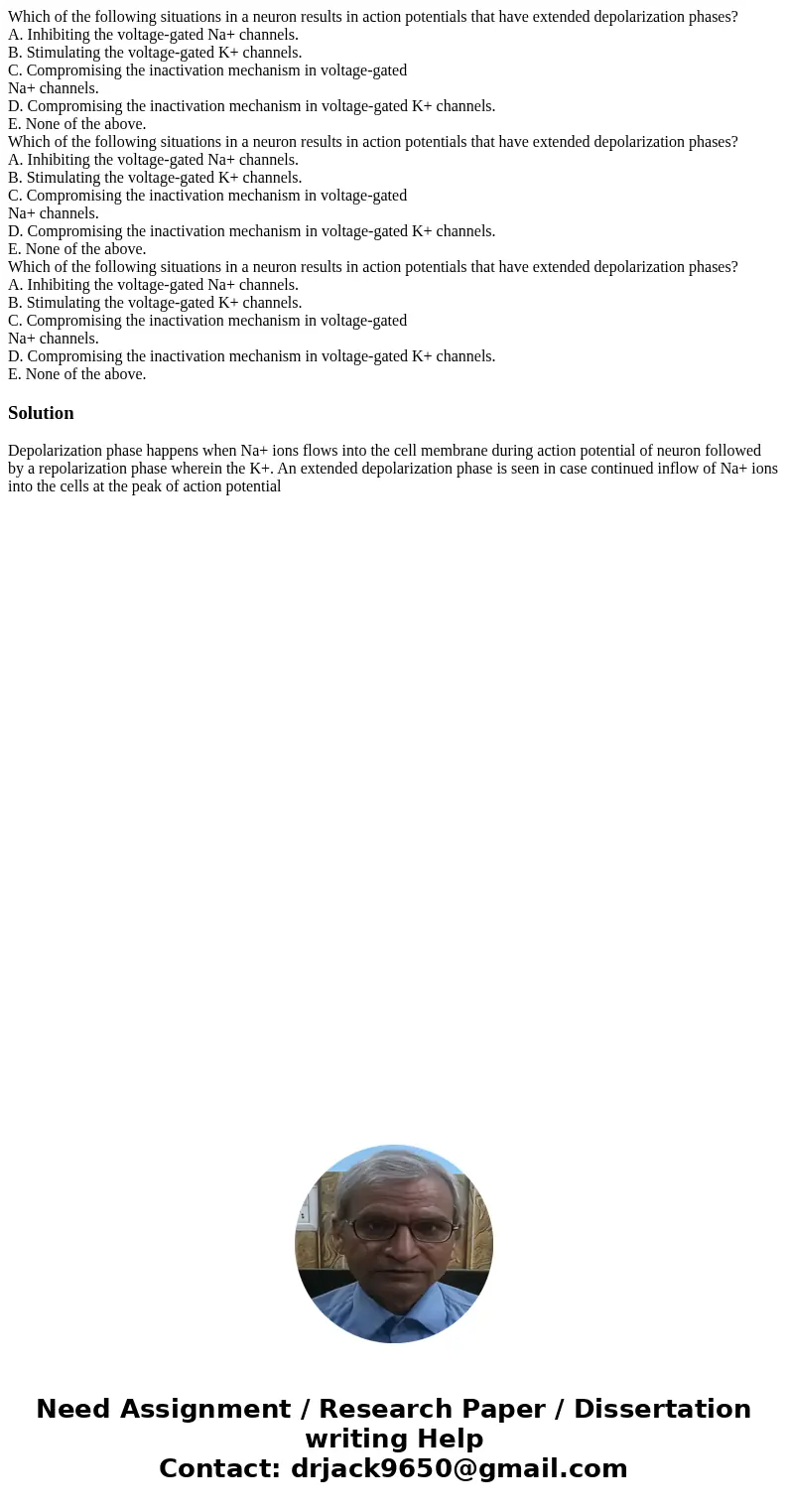Which of the following situations in a neuron results in act
Which of the following situations in a neuron results in action potentials that have extended depolarization phases?
A. Inhibiting the voltage-gated Na+ channels.
B. Stimulating the voltage-gated K+ channels.
C. Compromising the inactivation mechanism in voltage-gated
Na+ channels.
D. Compromising the inactivation mechanism in voltage-gated K+ channels.
E. None of the above.
Which of the following situations in a neuron results in action potentials that have extended depolarization phases?
A. Inhibiting the voltage-gated Na+ channels.
B. Stimulating the voltage-gated K+ channels.
C. Compromising the inactivation mechanism in voltage-gated
Na+ channels.
D. Compromising the inactivation mechanism in voltage-gated K+ channels.
E. None of the above.
Which of the following situations in a neuron results in action potentials that have extended depolarization phases?
A. Inhibiting the voltage-gated Na+ channels.
B. Stimulating the voltage-gated K+ channels.
C. Compromising the inactivation mechanism in voltage-gated
Na+ channels.
D. Compromising the inactivation mechanism in voltage-gated K+ channels.
E. None of the above.
Solution
Depolarization phase happens when Na+ ions flows into the cell membrane during action potential of neuron followed by a repolarization phase wherein the K+. An extended depolarization phase is seen in case continued inflow of Na+ ions into the cells at the peak of action potential

 Homework Sourse
Homework Sourse